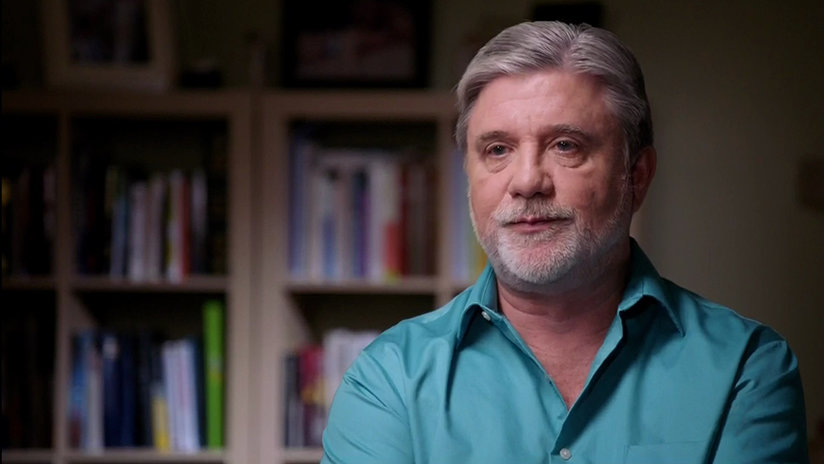
-
HOME
-
WHAT IS STANDOur Mission Our Values Our Help Contact
-
WHAT WE FIGHT FORReligious Freedom Religious Literacy Equality & Human Rights Inclusion & Respect Free Speech Responsible Journalism Corporate Accountability
-
RESOURCESExpert Studies Landmark Decisions White Papers FAQs David Miscavige Religious Freedom Resource Center Freedom of Religion & Human Rights Topic Index Priest-Penitent Privilege Islamophobia
-
HATE MONITORBiased Media Propagandists Hatemongers False Experts Hate Monitor Blog
-
NEWSROOMNews Media Watch Videos Blog
-
TAKE ACTIONCombat Hate & Discrimination Champion Freedom of Religion Demand Accountability
Five Things to Know About Steve Hassan

1. Steve Hassan is a proponent of the criminal practice of violent deprogramming—the kidnapping, psychological manipulation and physical abuse of members of minority religions.
In 1976, Steven Hassan entered the field of violent deprogramming, a practice described as “protracted spiritual gang-rape” and “the most serious violation of... religious liberty in this generation.”
Hassan’s victims, members of minority religions he arbitrarily deems “cults,” have gone on to speak out against the cruel and brutal tactics he employed in an effort to suppress their religious freedom and force them to recant their beliefs.
- In November 1976, Hassan was involved in the violent deprogramming of a member of the Unification Church (A.R.) whom Hassan forcibly kidnapped and imprisoned in Utica, Michigan. A.R. was thrown to the floor with his hands and feet bound for three full days and deprived of sleep. Over those 72 hours, Hassan and his partner, in shifts, humiliated and verbally abused A.R., even threatening to inject him with a series of shots if he did not vow to leave his religion. After Hassan was named in a $12 million lawsuit, he attempted to suborn perjury, writing to A.R., pleading with him to lie about and deny Hassan’s traumatic abuse.
- In December of the same year, in Peterborough, New Hampshire, Hassan led the deprogramming of a victim, C.K., who was confined to a room for days and mentally and emotionally abused by Hassan. A man guarded the door throughout, prepared to use force to prevent her escape.
- In May of 1984, Hassan victimized a religious woman, L.S., who was thrown on a bed, held down, and told her leg would be broken if she called for help. She was then harassed and ridiculed for the nine days Hassan imprisoned her against her will.
2. Hassan served as an advisor to a now bankrupt criminal organization.
Steve Hassan performed the function of “advisor” to the Cult Awareness Network (CAN), a group devoted to the violent deprogramming of its victims.
Using Hassan’s abusive methods, CAN targeted Pentecostal Christian and 23-year-old Jason Scott, whom they forcibly held against his will and abducted, handcuffed and brutalized for days. In 1994, Scott sued CAN for negligence and conspiracy to violate his civil rights and religious liberties. CAN was found guilty, with Scott awarded $4.875 million in damages.
“What this whole thing has done to my family is just unspeakable,” Scott said. “I felt absolutely attacked in every direction.”
The jury found the conduct of the deprogrammers “so outrageous in character and so extreme in degree as to go beyond all possible bounds of decency… atrocious and utterly intolerable in a civilized community.” U.S. District Judge John Coughenour described “the maliciousness of [CAN’s] conduct towards Mr. Scott,” and stated, “Thus, the large award given by the jury... seems reasonably necessary to enforce the jury’s determination on the oppressiveness of the defendants’ actions and deter similar conduct in the future.”
CAN subsequently filed for bankruptcy.
3. Hassan’s livelihood is based on theories debunked by the American Psychological Association in 1987.
Hassan today uses any available platform to dehumanize members of minority religions. As the basis for his commentary, Hassan uses the myth of religious brainwashing—a theory advocated by disgraced psychologist Margaret Singer and rejected by the academic and scientific community for over 30 years.
As noted by Dr. Dick Anthony in the publication Social Justice Research, the theory is “not based on systematic research” but instead serves as “an ideological attack on new religions.”
- On May 11, 1987, the Board of Social and Ethical Responsibility for Psychology of the American Psychological Association (APA) formally dismissed religious brainwashing, rejecting a report on the theory as “lack[ing] the scientific rigor and evenhanded critical approach needed for APA imprimatur.”
- In May 1989, the American Sociological Association, the Society for the Scientific Study of Religion, and members of an APA executive council reiterated the APA’s position in an amicus brief to the United States Supreme Court. They argued that the theory of religious brainwashing has “no scientific validity” and noted that “to the extent that [it] can be said to have any empirical foundation at all, that foundation is so methodologically inadequate to be worthless.”
- After her religious brainwashing theory was thoroughly discredited, Margaret Singer was prohibited by courts from testifying as an expert on minority religions. Steven Hassan, Singer’s modern successor, has likewise been rejected as an expert witness in court.
4. Hassan misrepresented his credentials to receive admission into a masters program.
In the 1980s, Hassan applied and was accepted into the masters program of Cambridge College in Boston, Massachusetts by representing he had obtained an undergraduate degree he never earned from either of the two colleges where he attended classes. Without a bachelor’s degree, Cambridge College Admissions Office states one cannot enroll into its masters program.
In another application, Hassan rebranded his years of violent deprogramming as “clinical experience... helping people.”
5. Hassan stands by his violent “techniques.”
In spite of criminal convictions and multi-million dollar judgments against violent deprogrammers, Hassan continues to champion “involuntary deprogramming” as “the only effective method” of coercing individuals to believe as one sees fit. In 2019, Hassan went so far as to assert that the entire American population should be deprogrammed, a statement for which he was widely ridiculed.









